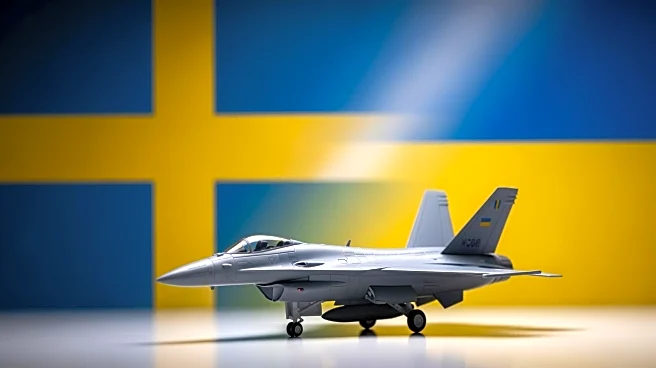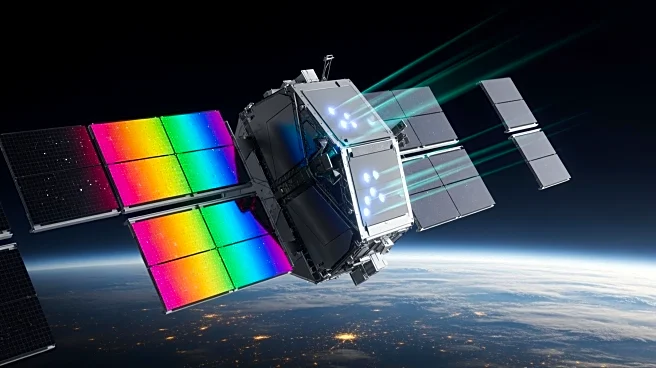What's Happening?
Sweden and Ukraine have signed a letter of intent for a potential deal to supply up to 150 Gripen E fighter jets to Kyiv over the next decade. Swedish Prime Minister Ulf Kristersson and Ukraine’s President
Volodymyr Zelenskyy met in Linköping, Sweden, where the defense company Saab, which manufactures Gripen jets, is based. The agreement marks the beginning of a long-term collaboration, with the first deliveries expected in 2026. The Gripen E model, known for its modern capabilities, is seen as a crucial element in strengthening Ukraine's defense against Russian aggression. Ukrainian pilots have already started training on these jets, which have been used in various NATO missions and direct combat scenarios.
Why It's Important?
The deal signifies a strategic partnership between Sweden and Ukraine, enhancing Ukraine's military capabilities amid ongoing tensions with Russia. The acquisition of advanced fighter jets like the Gripen E is expected to bolster Ukraine's air defense, providing a significant upgrade to its current fleet. This move is crucial for Ukraine as it seeks to maintain sovereignty and security in the face of Russian military actions. For Sweden, the agreement underscores its commitment to supporting Ukraine and aligns with broader European defense strategies. The deal also highlights the importance of international cooperation in addressing security challenges in Europe.
What's Next?
The first deliveries of Gripen jets are anticipated in 2026, with Ukrainian pilots already undergoing training. The collaboration between Sweden and Ukraine is expected to continue, with both nations coordinating positions ahead of upcoming European meetings. These discussions will focus on defense and security issues, emphasizing the need for unity in decision-making to achieve desired outcomes. The deal may also influence other European countries to enhance their support for Ukraine, potentially leading to further military aid and strategic partnerships.
Beyond the Headlines
The agreement between Sweden and Ukraine could have broader implications for European defense policies, potentially encouraging other nations to invest in modernizing their military capabilities. The use of Gripen jets, which run on a US-made engine, also highlights the interconnected nature of global defense industries. This development may prompt discussions on the ethical and legal dimensions of international arms deals, particularly in conflict zones.










